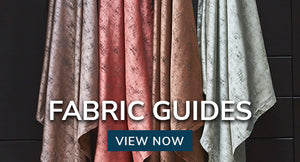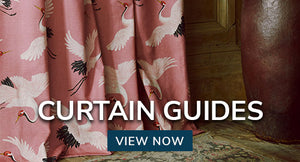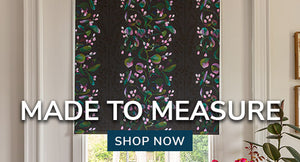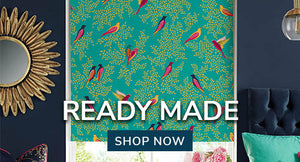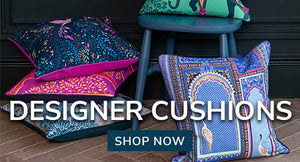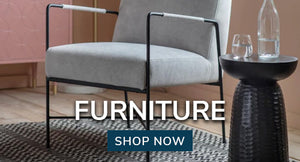Joanna feeley's designer chain
Joanna Feeley is no stranger to our blog, as back in July we featured her on our Designer Insights feature, here. So when we created a new feature "The Chain" she was the first person we asked to participate and surely enough she was more than happy to take part. But "what is the chain", I hear you ask. Well, the chain is a modern day chain letter in blog form. Each person gets asked a question by the previous person in the chain and then writes their own question for the next person in the chain. So if nominated this is the perfect opportunity to ask a colleague any question of your choosing. You can find out about what motivates them, where they draw their inspiration from or any question you can think of. So without further a do, we asked Joanna Feeley a question and here's how she responded.
We asked: Throughout your career you have seen dozens of different trends come and go, but which one has had a lasting influence on your approach to design? And why did it affect you so much?
Joanna answered: When you work in trend forecasting you are exposed to many different styles but I do think that we’re all personally drawn to a particular style that resonates with us, quite often that’s a historical thing. For me, although I might dip in and out of other styles over time, my main love of design is mid-century 1950s furniture. I love the real thing, and I love modern design that references this style. The 1950s was a particularly good time for furniture design, my favourite designers from this period are Robin and Lucienne Day and Charles Eames. If I could be surrounded by their furniture and live in Frank Lloyd Wright's Fallingwater house (which is ranked as the best all-time work of an American architect, no less!) I would be in design heaven!
Joanna asked: Your designs are very strong conceptually. Do you look outside of the furniture – or even the design – industry for inspiration?
David answered: Most definitely, I look for inspiration wherever I can, from the world around us, the spaces we occupy, the objects we engage with and the modes of interaction we employ through daily life. I think these observations influence my approach to design, often resulting in solutions led by utility. A lot of my concepts form slowly over time as a slow hunch, a collection of ideas that are then brought together with various manufacturing techniques. I try to get involved with manufacturing processes as much as possible, to find out first hand how a given material can be manipulated to greater effect, and if possible to bring a new approach to this. Understanding why something is made the way it is, and appreciating the consideration of its formation has a significant bearing on my methods.
David asked: Although we work in the same industry our business models are very different. What would you say is the biggest challenge facing your business today?
Elliot answered: The challenge for us as a company stems from the fact that the industry we’re involved in is so established. On one hand you have young designers who are trying to create opportunities for self promotion, and on the other hand are the established industry players who dominate the market. Crossing the chasm in between and developing a sustainable and scalable business whilst attracting the attention of the key decision-makers is the most difficult thing to balance. Geoffrey A Moore’s age-old theory is the best summary of this: “Pragmatists won’t buy from you until you’re established, yet you can’t get established until they buy from you.”
Elliot asked: What company do you most admire and why?
Anthony answered: Rather than go too far out of my profession of choice, I’ve chosen 3 companies; Wallpaper*, Winkreative and Monocle Magazine. Reason being that I admire the attitude of the Founder of all three companies; Tyler Brûlé. Brûlé had the idea for Wallpaper* in a hospital bed recovering from injuries suffered whilst working as a journalist in Afghanistan. He had the idea, but also the courage to trust his gut, quit his job, get a bank loan and start what would become one of the most influential enterprises of the 90s. Moving on Brûlé founded Winkreative and then subsequently Monocle both of which are global successes.



